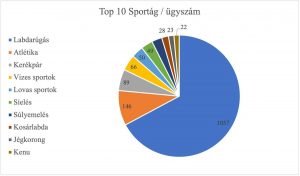
For a large part of the year, but especially during the holidays, for many companies or wealthier individuals, it comes to the fore to support initiatives, goals, and organizations which are important to them, with donations and offerings. The charity sector has grown enormous. Many of which see only thats positive side, although it also provides opportunities for tax avoidance, while (under with the law) shortening the budget by significant sums. After all, in most countries, including Hungary, if we donate to a charity, we can describe it from different public charges. It has also been argued that by supporting…

The current form of the Hungarian general practitioner (‘GP’) system is unsustainable, as it is still unable to perform its role as a gatekeeper. Doctors working as retirees, the irreplaceable human resources, unorganized patient pathways, increasing workload, and untapped professional capacity result in a hospital-centric health care system while outpatient and inpatient clinics are unable to perform their original function, and increasing waiting times in all sectors of the sector weaken patients’ confidence in healthcare. On the one hand, these problems raise dilemmas about the inefficient use of public money, on the other hand, the need for an organized integration…

Hungary, too, has accepted the proposal made by the OECD regarding the global minimum tax, which is planned to apply to the taxation of profits of larger multinational companies from 2023 onwards. The goal of the framework signed by 136 countries in Paris is to introduce a universal (minimum) 15% tax for companies with group-wide revenues exceeding 750 million USD. From the beginning, the supporters focused on the fiscal aspects, meanwhile the opposers considered the long-time investment more important. A consensus regarding the framework has been achieved, and while the detailed rules are still being developed, the advantages and disadvantages of the…

With Hungary’s accession to the European Union, the national and European budgets got into considerably closer contact with each other. On the other hand, we should also see and note that after the accession, the practice of budget fraud related to acquisitions within the EU has evolved. These crimes included various VAT-related frauds such as accepting pro forma invoices related to domestic sales activities and other economic activities related to acquisitions and sales within the Community. In the second part of our series on budget fraud in Hungary, we focus on the effective Hungarian regulation. Read more… (Petra Ágnes Kanyuk)

The protection of the European Union’s financial interests holds a prominent place within the EU’s institutional framework, as is historically evident from the inclusion in EU primary law of the requirement that Member States ensure their effective protection, equivalent to that reserved for their national counterparts. As regards the Hungarian regulation, on the road leading to the establishment of the legal definition of budget fraud currently in force in the new Criminal Code, the effective protection of the budget of the EU or EC as a need was the most pronounced among the factors which brought about the formulation. In the following, we aim…

In January 2022, the new Guidelines on state aid for climate, environmental protection and energy 2022 (’CEEAG’) will replace the Guidelines on State aid regarding environmental protection and energy 2014-2020 (’EEAG’). The Commission intends to align the new guidelines with the EU's objectives and targets set out in the European Green Agreement and with regulatory reforms in the fields of energy and the environmental protection, while extending the scope of soft law to climate protection. Read more… (Krisztina Széles)

The Advocate General, in his Opinion delivered on 16 December 2021, proposes that the Court allow the appeal brought by Ireland and annul the Commission’s decision declaring aid which Luxembourg granted to Fiat as being incompatible with the internal market. Read more… (Krisztina Széles)

The exponential growth in the importance of the digital economy and the debates surrounding it fill a large part of today's legal discourse. Demonstrating the unheard-of advance of this new economic segment, a 2018 Commission report found that the largest digital companies had an average annual growth rate of around 14% in the seven years preceding the report, compared to 0.2% for 'traditional' transnational companies, and five of the six largest companies in the world were digital companies. Read more… (Márton Ferenc Bak)


